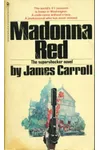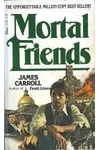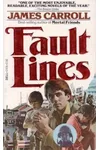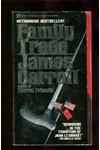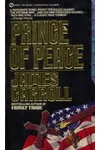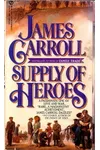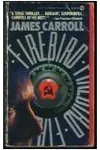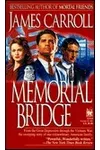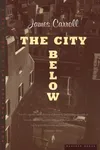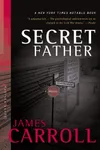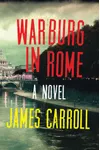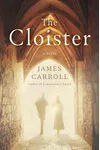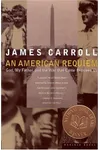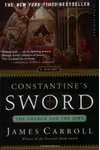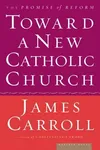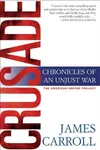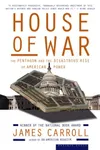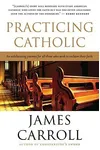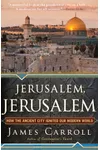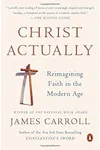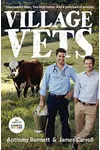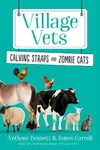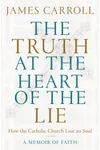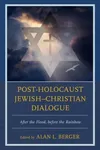Picture a storyteller who traded a priest’s collar for a pen, weaving tales that probe the heart of faith and history—meet James Carroll! Born in 1943, this American author, historian, and former Catholic priest has crafted a literary legacy that dances between novels and non-fiction, earning accolades like the National Book Award while sparking debates with his bold takes on religion and power.
Carroll’s work isn’t just storytelling; it’s a deep dive into the human spirit, blending personal experience with historical sweep. From his Chicago roots to his decades-long career, he’s become a voice for those wrestling with faith, war, and identity. Ready to explore his world? Let’s go!
The Making of James Carroll
Born on January 22, 1943, in Chicago, James Carroll grew up as the second of five sons in a family shaped by military and faith. His father, Joseph F. Carroll, was an FBI agent turned Air Force general, leading the family to Washington, D.C., and Germany. Educated at the Priory School and later Georgetown University, Carroll felt a call to the priesthood, entering St. Paul’s College seminary. Ordained in 1969, he served as a chaplain at Boston University, but the Vietnam War’s turmoil and his antiwar activism pushed him to leave the priesthood in 1974 to pursue writing full-time.
Carroll’s early love for poetry, sparked by studying with poet Allen Tate, set the stage for his lyrical style. His shift from clergy to author wasn’t just a career change—it was a quest to explore faith and morality through stories, a theme that defines his work.
James Carroll’s Unforgettable Stories
Carroll’s bibliography is a tapestry of novels and non-fiction, each piece wrestling with big questions about faith, war, and human connection. His memoir, An American Requiem: God, My Father, and the War That Came Between Us (1996), won the National Book Award, blending personal and political as it recounts his strained relationship with his father during the Vietnam War. It’s raw, poignant, and a masterclass in memoir.
His non-fiction shines in Constantine’s Sword: The Church and the Jews (2001), a New York Times bestseller that traces Christian anti-Semitism from the Gospels to the Holocaust. Praised by Jewish scholars and adapted into a critically acclaimed documentary, it’s a bold critique that stirred controversy among Catholic critics. In House of War (2006), Carroll tackles the Pentagon’s unchecked power, earning the PEN/John Kenneth Galbraith Award with its chilling historical depth. His novels, like The Cloister (2017), weave history and faith, telling the story of a modern priest and a Holocaust survivor inspired by the medieval love story of Abelard and Héloïse.
Carroll’s style is lyrical yet incisive, blending historical rigor with emotional resonance. Whether exploring Irish rebellion in Mortal Friends or Catholicism’s evolution in Practicing Catholic, his works challenge readers to confront uncomfortable truths with grace and empathy.
Why James Carroll Matters
James Carroll’s impact lies in his courage to question sacred institutions—be it the Catholic Church or the Pentagon—while staying rooted in compassion. His books don’t just inform; they provoke thought and inspire reform, making him a touchstone for readers grappling with faith and history. His 23-year tenure as a Boston Globe columnist, earning the Scripps Howard Journalism Award, amplified his voice on issues like war and peace, cementing his role as a public intellectual.
Carroll’s legacy endures through his ability to humanize complex histories, from anti-Semitism to military power, inviting readers to reflect on their own beliefs. His work remains a bridge between past and present, faith and doubt, story and truth.
About James Carroll
- Born: January 22, 1943, in Chicago, Illinois
- Key Works: An American Requiem, Constantine’s Sword, House of War, The Cloister
- Awards: National Book Award (1996), National Jewish Book Award (2002), PEN/John Kenneth Galbraith Award (2006)
- Fun Fact: He’s married to novelist Alexandra Marshall, and they live in Boston!
Ready to dive into James Carroll’s world? Snag Constantine’s Sword or An American Requiem and lose yourself in his thought-provoking blend of history and heart!
